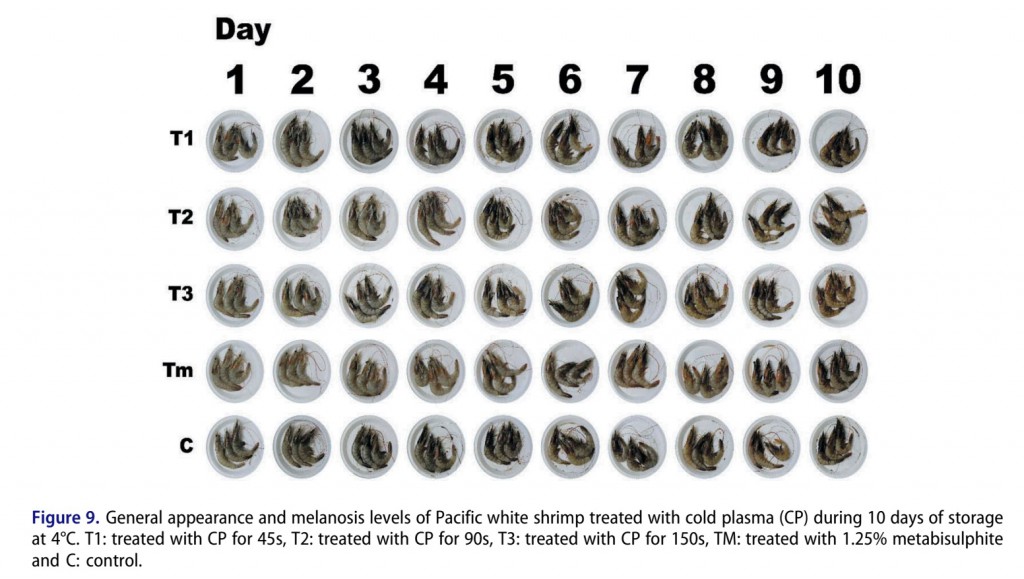The Effects of Cold Plasma Application on Quality and Chemical Spoilage of Pacific White Shrimp (Litopenaeus vannamei) during Refrigerated Storage
Fatemeh Zouelm, Khadijeh Abhari, Hedayat Hosseini & Mohamadreza Khani
Journal of Aquatic Food Product Technology
DOI: 10.1080/10498850.2019.1627452

ABSTRACT
Pacific white shrimp (Litopenaeus vannamei) is an important species in aquaculture worldwide. Post-mortem changes during cold storage reduce the quality of shrimp and shorten its shelf life. Cold plasma (CP) was applied for 45, 90, and 150s as T1, T2, and T3, respectively, to fresh harvested shrimp. The biochemical parameters and melanosis were analyzed in comparison to metabisulphite treated (TM) and control during 12 days of refrigerated storage. The results highlighted lower rate of increase in pH, total volatile base nitrogen (TVB-N) content, thiobarbituric acid reactive substances (TBARS), free fatty acid (FFA), peroxide value (PV), and fluorescent compounds (FC) in shrimp exposed to CP and metabisulphite compared to control (P < 0.05). Although CP lowered biochemical changes in T1 and T3 shrimp, T2 was the most effective treatment in reducing undesirable changes and improving quality of shrimp. In all storage periods, melanosis was significantly lower in T2, T3, and TM samples. Results demonstrate that CP exposure effectively decreases relative activity of polyphenol oxidase (PPO) enzyme, and prolonging the exposure to CP for 150 s resulted in 50% reduction in enzyme activity. We conclude that application of CP for 90 s was the most efficient circumstance to extend shelf life of white shrimp during cold storage.
